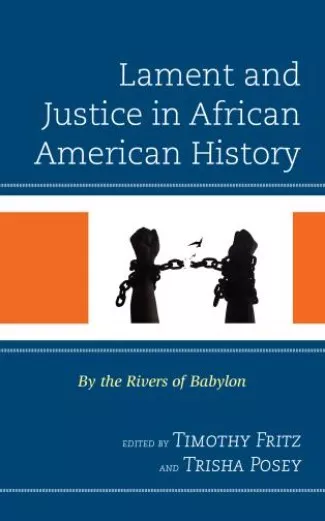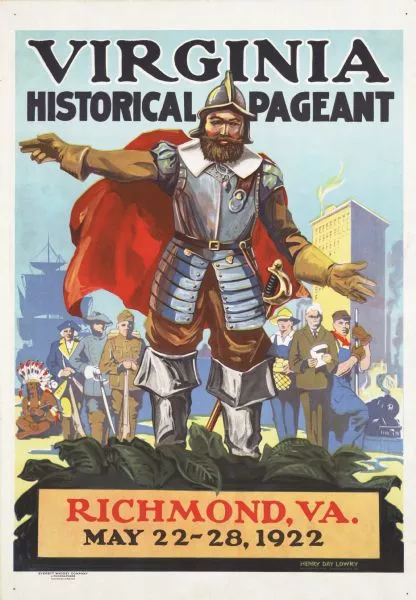
AU Professor of Religion Slade finds history in family archives
For his study leave, Ashland University Professor of Religion Peter Slade, Ph.D., had all kinds of travel planned.
But because it was scheduled in 2021 during the height of the COVID pandemic, he couldn’t do any traveling.
“So, I ended up going down the family history rabbit hole and discovered my wife’s great-grandfather had an interesting story,” Slade said.
That story worked well in the chapter he was invited to write in June 2021 with several other church historians in the book, “Lament and Justice in African American History: By the Rivers of Babylon,” which was published this fall.
His chapter, “The Planet and the Pageant,” focuses on a pageant in 1922 in Richmond, Virginia celebrating Virginia’s history. The event was organized by his wife’s great-grandfather, William Broaddus Cridlin, whose story Slade had just happened to stumble upon during his genealogy research.

“I wanted to see what was going on in the African American community in Richmond, Virginia at the time,” Slade said. “I found John Mitchell, who was the editor of an African American newspaper, the Richmond Planet.
“He was lamenting about the situation in Virginia, particularly around lynching,” Slade added. “He wrote an op-ed about the pageant where he noted that African Americans were completely left out of the story.”
The pageant was a whole week of processions and historical tableaus with a huge production every night presenting the history of Virginia into the 20th century.
“It was interesting because it had been forgotten that there was this big pageant movement in the country at that time,” Slade said. “Hundreds of thousands of people would be involved in these pageants in big cities.”
Even though the 1920s were a low point in American race relations, Slade said he was still startled that African Americans were completely ignored in the Richmond pageant after he reviewed the script and Cridlin’s accompanying book.
Slade, whose wife’s family traces its lineage back to Jamestown, Virginia, said her great-grandfather was a remarkable man. He was a well-known historian, genealogist and traveling salesman who helped Virginia pass an absentee ballot law before World War I that meant soldiers in Europe during the war could vote, according to Slade, who added that Cridlin also proposed and organized the massive Virginia Historical Pageant.

“I don’t have any evidence of Cridlin’s personal views on race, but his project – celebrating the history and destiny of a constructed white Virginia civilization – certainly contributed to the movement that passed the harshest segregationist laws in 1924,” said Slade, who met his wife of 21 years while working at the University of Virginia.
Most of Slade’s focus as a church historian has been with the Deep South during the Civil Rights Movement in the 1960s.
The most recent book Slade co-edited about race relations in the 1960s, “People Get Ready: Twelve Jesus-Haunted Misfits, Malcontents, and Dreamers in Pursuit of Justice,” also published this year in January. He worked on this project during his study leave in 2021, too.
That was mostly a book of biographies, according to Slade, who wrote about Peter Seeger, an American folk singer and social activist who emerged as a prominent singer of protest music in the 1960s.
“Most people don’t realize that it was Seeger who brought the song, ‘We Shall Overcome,’ to the movement,” Slade said.
Over the years, Slade, who has been with AU since 2006, has published several books, chapters and papers as both an editor and contributor.
“The control freak in me prefers to be an editor,” Slade said. “On the other hand, it can be a real pain chasing people down and making everything right.”
Because he enjoyed contributing so much on this latest project, Slade said he hopes to write more about the 1922 Richmond pageant, probably something visual.
“There were a lot of photographs taken by the press of the pageant because I’ve seen them in the newspapers of the day,” he said. “Some of them must be in the archives somewhere in Richmond. I know a couple of archives there, but I haven’t had time to go.”
Even if that follow-up project doesn’t happen, Slade said he’s happy to have written about and researched the 1922 Richmond pageant.
“I only get involved in things that I’m really interested in,” he said. “Life’s too short not to.”